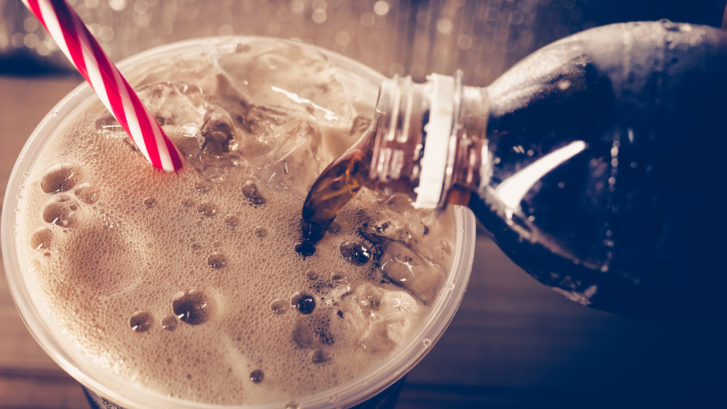Diet or Not, All Sodas Linked To Early Death
As the evidence against soft drinks keeps piling up, the best advice our concierge family doctors at MD 2.0 in Jupiter can give you is, drink water. Or coffee. Or tea. Anything but a manufactured product containing carbonated water, caramel color, aspartame (in diet sodas), phosphoric acid, natural and artificial flavors, and sodium benzoate as a preservative.
Latest damning study
According to the most recent study on the subject, published this month in the Journal of the American Medical Association (JAMA) Internal Medicine, subjects who drank two or more glasses of soft drinks per day had a higher risk of dying than those who consumed less than a glass per month (one glass equals eight ounces—a typical can of soda contains 12 ounces).
This study followed 451,743 individuals from 10 European countries from 1992 to 2000, excluding those who already had cancer, heart disease, stroke or diabetes when the study began. It found that a high-level of consumption (defined as two or more glasses per day) was associated with an elevated risk of death from all causes.
“Positive associations were observed between sugar-sweetened soft drinks and digestive disease deaths,” wrote the authors, “as well as between artificially sweetened soft drinks and circulatory disease deaths.” Digestive disease deaths included diseases of the pancreas, intestines, liver, and appendix. A high consumption of soft drinks was also associated with an increased risk for Parkinson’s disease.
Other studies, similar results
One study published last February in the journal of the American Heart Association (AHA), Stroke, appeared to show an increased risk of stroke in older women who consume as few as two diet sodas per day.
Researchers tracked the diet soda consumption of over 80,000 post-menopausal women for 12 years. Those subjects who reported drinking two or more diet sodas a day had a 23 percent increased risk of stroke compared to those who drank the beverages less than once a week. African-American women and subjects who were obese showed an even greater increase in risk.
A 2017 study, also published in Stroke, found that artificially sweetened drinks were not only tied to increased risk of stroke, but also of dementia. This study, an offshoot of the long-term Framingham Heart Study, analyzed the results of diet soda consumption on more than 4,300 adults over a period of 10 years. It found that those who drank a single diet soda per day were three times more likely to suffer an ischemic stroke (the kind caused by blocked blood vessels), as well as three times more likely to be diagnosed with dementia, as those who never consumed diet sodas.
Other studies have suggested that drinking two or more diet sodas a day could double the risk of type 2 diabetes as well as metabolic syndrome, the precursor of heart disease.
And again, it’s not just the diet sodas: A study published last March in the journal Circulation found that women who drank more than two servings a day (a standard glass, bottle, or can) of sugar-sweetened beverages had a 63 percent increased risk of premature death over those who drank them less than once a month. Men showed a 29 percent increase of dying early.
And a July study published in the British medical journal BMJ showed that drinking just one small glass of a sugary drink daily led to an 18 percent higher risk of any type of cancer and a 22 percent risk of breast cancer.
Always caveats
As always in any study, especially dietary studies, the adage that “association does not necessarily prove causation” holds true. The study’s authors cautioned that those who drink a large amount of soda may also have other unhealthy lifestyle habits that were not accounted for in the study. They did, however, make statistical adjustments in their analysis for smoking, body mass index, and other such factors.
Nevertheless, we believe the mounting evidence against soft drink consumption will soon reach the conclusion that these beverages are not conducive to a healthy lifestyle. It may be difficult to drop the soda habit, but remember, humans survived for millennia without fizzy soft drinks. For the sake of your health, we’d recommend alternative ways to quench your thirst.

